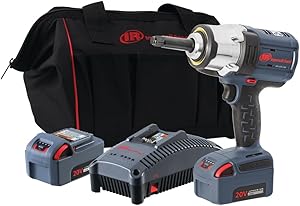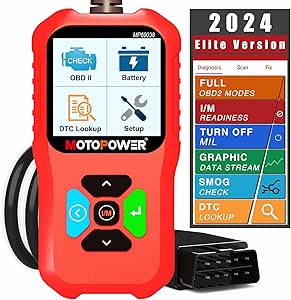From Wrenches to Riches: Building Your Own Mechanics Garage Empire
- Craig J A
- Oct 1, 2024
- 8 min read
I remember looking out of my window and seeing a garage across the road causing a heap of traffic and noise nearly every morning. As frustrating as it was at times, the business was always bustling and when I got my first car I soon became a customer myself. Was it because of convenience or service? Who knows, but I certainly kept coming back. I use to see sportscars, vans and regular cars all lined up on the road waiting to be serviced, and thinking the garage owner must be raking it in because the business seemed to be never ending there were no quiet days.
Ibis world gives an interesting insight into the current and projected landscape of the motor vehicle repair & maintenance industry -such as the growth of electric vehicles and the effect of rising fuel costs.

“Revenue for the Motor Vehicle Maintenance and Repair industry is forecast to rise at a compound annual rate of 0.3% over the five years through 2024-25 to £34.9 billion, including a forecast expansion of 2.2% in 2024-25…..The total number of vehicles on UK roads will rise steadily in the coming years, created a greater potential work pool for garages.”
Before diving into the mechanics of running an auto repair garage, it's crucial to start with thorough market research like you would do for any service business. Take time to study the local competition: how many garages are in your area, what services they offer, and what pricing models they use. For myself , my old area had loads of garages & mechanics which were each a stone throw away, some of these offer niche services such as tyre supplies or aligning the tracking of your car. I for one wouldn’t even consider going to a garage on a main road where it was too logistically awkward to pull up and get a brief quote. I’ve even seen some mechanics that deal with specific types of vehicles, like electric cars or classic models. Specialising in these niches could set your business apart from the competition, helping you establish a unique selling proposition (USP). You will need an understanding of your customer base whether they're individuals, small businesses, or commercial fleets. This will guide your strategy in delivering tailored services.
If you’re going to be deal with the public's vehicles there is going to be a huge safety risk as you can imagine, expect there to be some red tape before you are up and ready. setting up a mechanic/garage requires adhering to various legal regulations that must not be skipped. You’ll need to register your business with Companies House if you plan to operate as a limited company, or you can opt to run as a sole trader. You’ll also need to obtain specific licenses, such as a waste disposal permit for handling used oil or tires, as well as meeting vehicle inspection standards if offering MOT testing (click on the image below to see this in detail).
Running a mechanic comes with several risks, so it's important to have the right insurance in place. You’ll need public liability insurance to cover accidents involving customers or third parties, and employers’ liability insurance is a legal requirement if you have staff. Additionally, tools and equipment insurance will protect your business assets, and road risks insurance is necessary if you plan to drive customer vehicles. Implementing solid risk management practices, such as regular health and safety training will also help minimise accidents and insurance claims. I spoke about my local mechanic being across the road from me, although it was annoying at times the owner would have definitely needed planning permission from the local authority before setting up shop so that is something you would need to look into.
Additionally, ensure that your business is compliant with health and safety regulations, including fire safety and having appropriate first aid measures in place. It’s also worth considering membership with a trade body like the Institute of the Motor Industry (IMI) for further recognition. You can click on the below images that will give you the full details of both regulations just mentioned.
Financing is a critical part of starting any business and a mechanic garage is no exception. You’ll need capital for securing a location, purchasing equipment, and covering initial operational costs. Start by determining how much funding you’ll need and explore the options available. whether through personal savings, bank loans, or small business grants. You may also consider seeking investment from business partners or exploring government-backed loan schemes specifically for small businesses in the UK. A solid business plan outlining projected costs, expected revenue, and a timeline for return on investment will be essential when seeking funding.
Location! Location! Location! plays a vital role in the success of your garage as I have mentioned this a few times now. You’ll need to find a location that’s easily accessible, visible to passing traffic and in proximity to your target market. Industrial estates or areas near major roads can be ideal, as they tend to offer larger premises with good access for customers. Ensure that the premises have enough space for vehicle storage, a workshop area, and an office or reception area. Additionally, consider the cost of rent & utilities when selecting a location, as these will significantly impact your overheads.
Walking into a garage and seeing all the equipment can look overwhelming and complicated. Equipping your garage with the right tools is essential for delivering high-quality service. The exact tools you need will depend on the type of vehicles and services you plan to offer, but some basics include vehicle lifts, diagnostic machines, and a comprehensive range of hand tools. Don’t forget about office equipment too: computers, accounting software, and booking systems will help streamline your operations. When purchasing tools, consider both quality and cost; investing in durable, reliable equipment will reduce downtime and increase your efficiency in the long term. I have added some software examples below - you can click on the image that will take you to the company's direct page.
I mentioned the importance of equipment so to get started, you’ll need a collection of essential tools. For basic hand tools, you should have socket sets in both metric and imperial sizes, along with spanner and wrench sets, screwdrivers in various sizes, pliers (needle-nose, locking, and regular), hammers like a ball-peen and a soft-faced mallet, and a torque wrench for accurate tightening. There is alot involved in setting up an auto repair shop/mechanic so I summarised the below:
For lifting equipment, hydraulic car lifts, such as two-post or four-post options, are necessary for working underneath vehicles. Additionally, a good floor jack is required for lifting, supported by jack stands for safety. If you plan to work on gearboxes, a transmission jack will also be needed.
In terms of diagnostic equipment, an OBD-II scanner will be vital for reading vehicle error codes. A multimeter helps with electrical diagnostics, while a battery tester checks battery health, and a compression tester helps diagnose engine problems.
For power tools, you should invest in an impact wrench for quick bolt work, along with a drill and drill bits for various tasks. An angle grinder will be useful for cutting and grinding metal, and an air compressor is essential for powering pneumatic tools.
If you offer tyre services, having a tyre changer for replacing tyres and a wheel balancer for ensuring proper balance will be necessary. A tyre inflator with a gauge ensures tyres are inflated accurately.
You’ll also need tools for fluid management, including an oil drain pan for oil changes, a fluid extractor for removing various fluids, and a waste oil container for proper disposal of used oil and fluids.
Safety is paramount, so be sure to have a fire extinguisher on hand, ideally a CO2 or powder type. A well-stocked first aid kit should also be available, along with protective gear like gloves, goggles, and steel-toed boots for personal protection.
Concept Garage Equipment provides a comprehensive guide to essential garage tools including vehicle lifts, diagnostic tools, and air compressors, along with detailed information on their importance and usage. You can check them out on the below image.
Your staff will be the backbone of your business, so it's important to hire the right team. Look for qualified mechanics with experience in the specific services you plan to offer. Consider whether you need apprentices to train up or experienced technicians to hit the ground running. It’s essential to provide ongoing training, especially with the rapid advancements in vehicle technology. Offering MOT testing? Make sure your staff are properly certified. A well-trained team not only ensures quality work but also enhances your business’s reputation, leading to higher customer satisfaction and retention. I added some online courses below which is an examples of how you can enhance your knowledge & skillset e.g. understanding of electricals as more electric cars are becoming prominent.
Your branding is the face of your business and will help you stand out in a crowded market. Choose a name that reflects the services you offer and resonates with your target audience. Create a logo that is memorable and professional, and ensure your website, signage, and promotional materials carry consistent branding. Having a strong online presence is vital—invest in a user-friendly website and maintain active social media accounts. Clear branding can help establish trust with potential customers before they even walk through your door. If you are lucky you may get the chance to collaborate with influencers & athletes like on the below video where Asco Cars have footballer Eddie Nketiah's seal of approval.
Customer service is a key factor in building a loyal customer base. Ensure that every interaction whether it's a phone call, email, or face-to-face conversation is professional and helpful. Implement a clear communication strategy, offering timely updates on repairs and being transparent about costs. Consider offering loyalty programs or discounts for repeat customers to encourage retention. Remember, word of mouth is powerful, and exceptional customer service will lead to positive reviews and referrals. My local garage only gave me a key ring every time I got my MOT completed ( I understand this may not seem like much), but you know why I kept coming back? It was the efficiency and service to rectify problems, they seem to have my interest at heart and did not seem like their only incentive was my money. I remember when my exhaust particular filter warning light turned on and they allowed me to use their machine to clean out the soot in the exhaust - this was all for free. Why? because I was a regular and loyal customer.
Setting competitive and fair pricing is essential for attracting and retaining customers. Research the going rates for various services in your local market and ensure that your prices reflect the quality of service and expertise you offer. While it’s tempting to undercut competitors, ensure that your prices cover costs and leave room for profit. Offering transparent pricing, with clear estimates and no hidden fees, builds trust with customers and makes them more likely to return. Consider offering tiered pricing options or bundled service packages for added value.
In line with my usual approach, I’ve included some recommended books to help you on your journey of setting up a mechanic business. These resources provide valuable insights into the industry, covering everything from business planning and management to technical skills and workshop setup. Whether you’re looking for a deep dive into the practicalities of running a garage or advice on building a successful business, these books will offer expert guidance and serve as a great foundation for your entrepreneurial journey.
Setting up your own mechanic business is an exciting journey that requires careful planning, the right tools, and a strong understanding of both the mechanical and business sides of the trade. While the process can seem overwhelming at first, taking the time to ensure you have the correct licenses, equipment, and a solid customer service approach will set you up for long-term success. Remember, building a trusted reputation in your community will be just as important as your technical skills. With dedication, the right support, and a passion for the trade, your mechanic garage can thrive in today’s competitive market.

























Comments